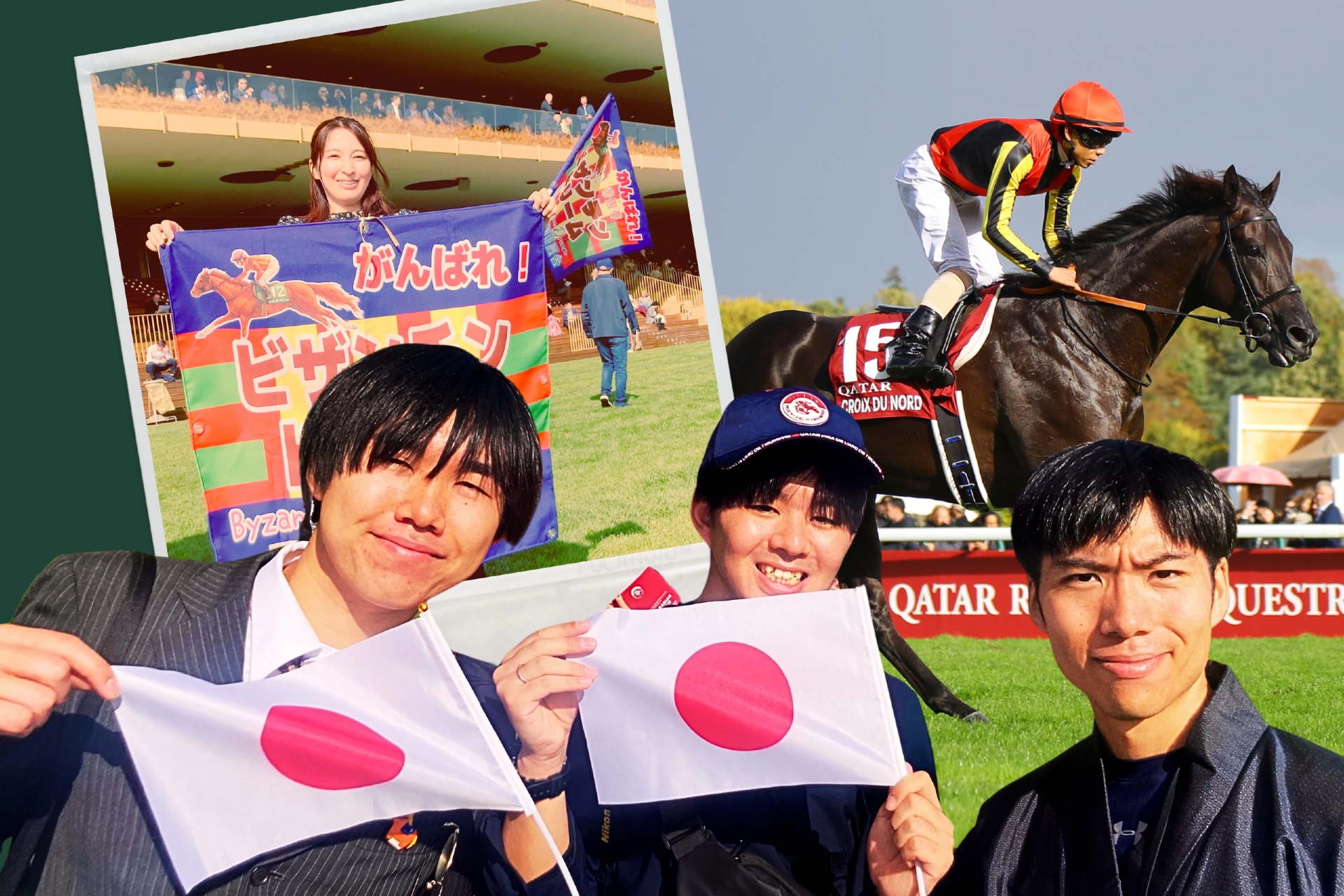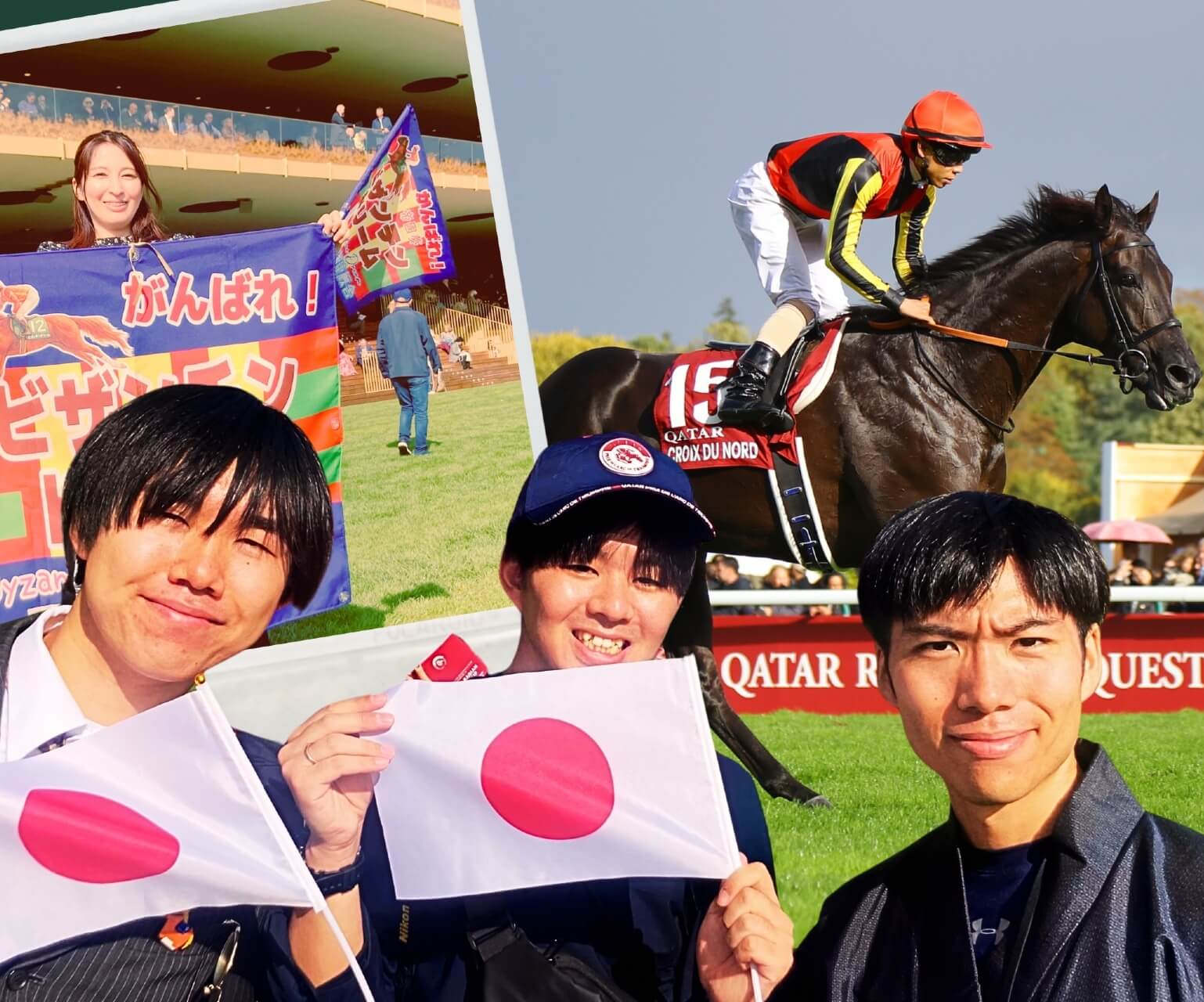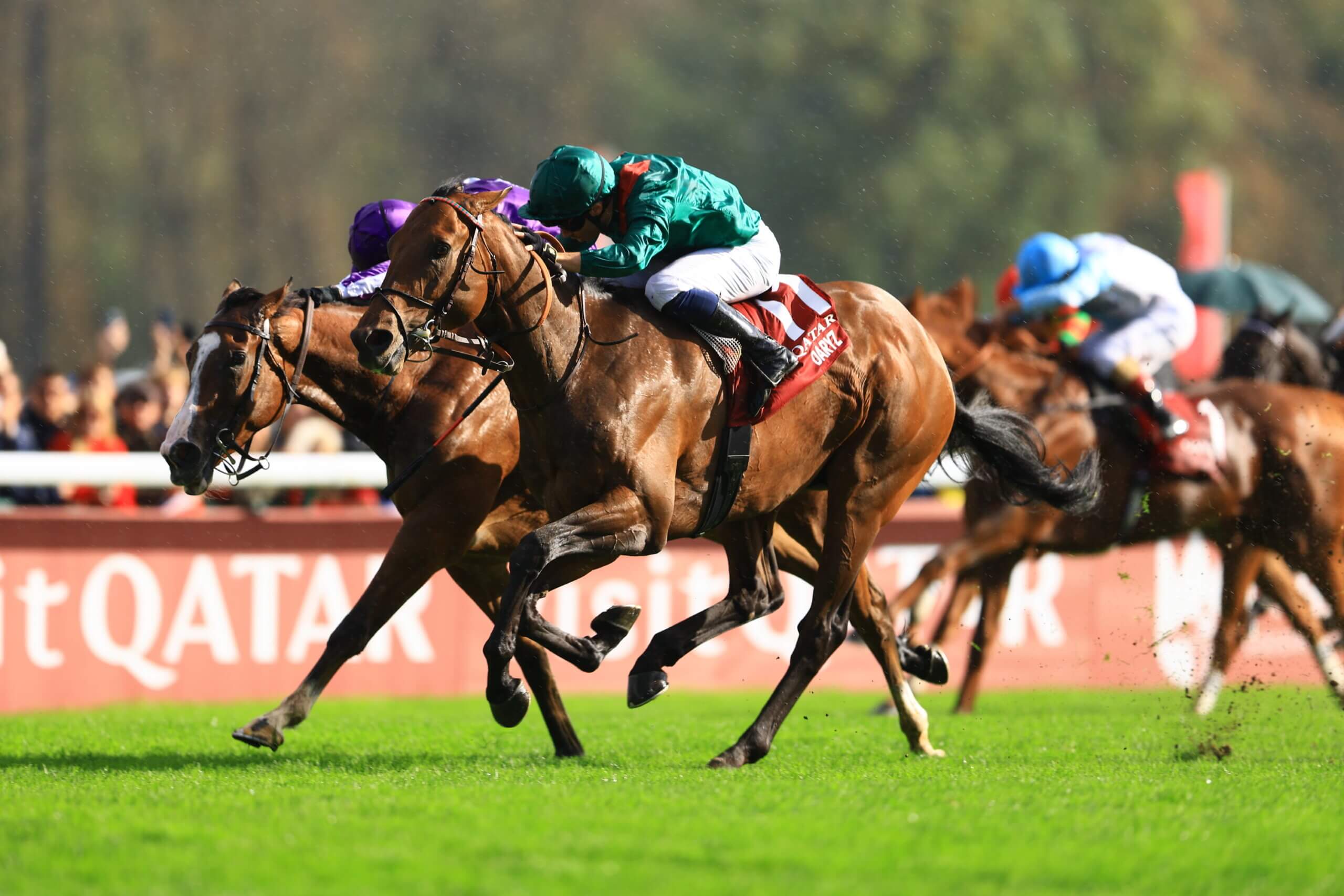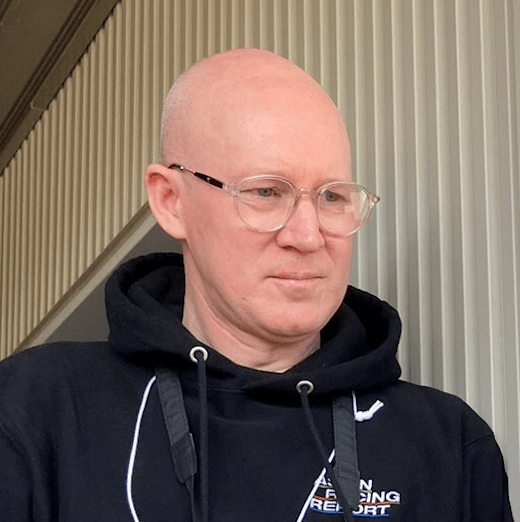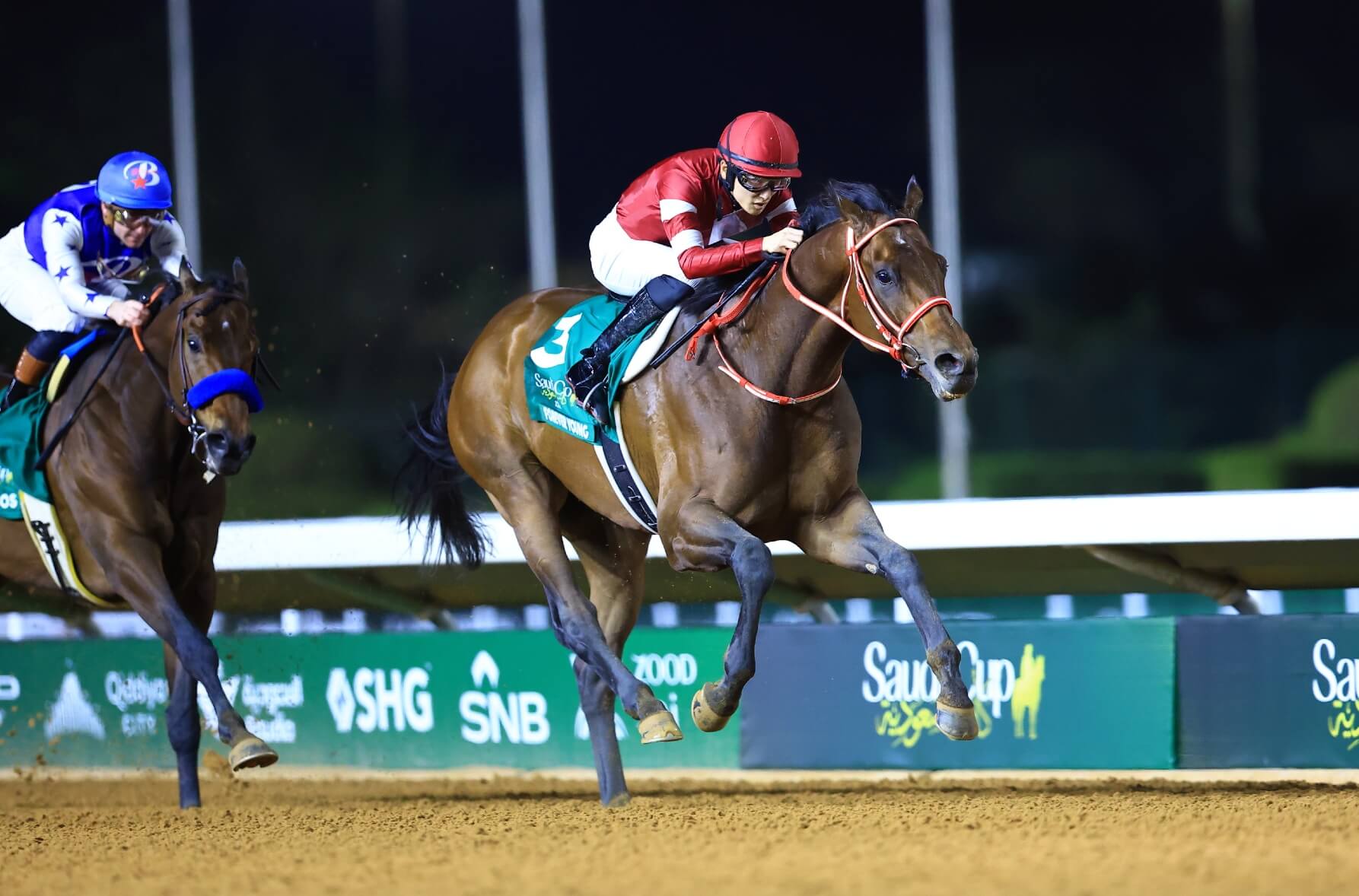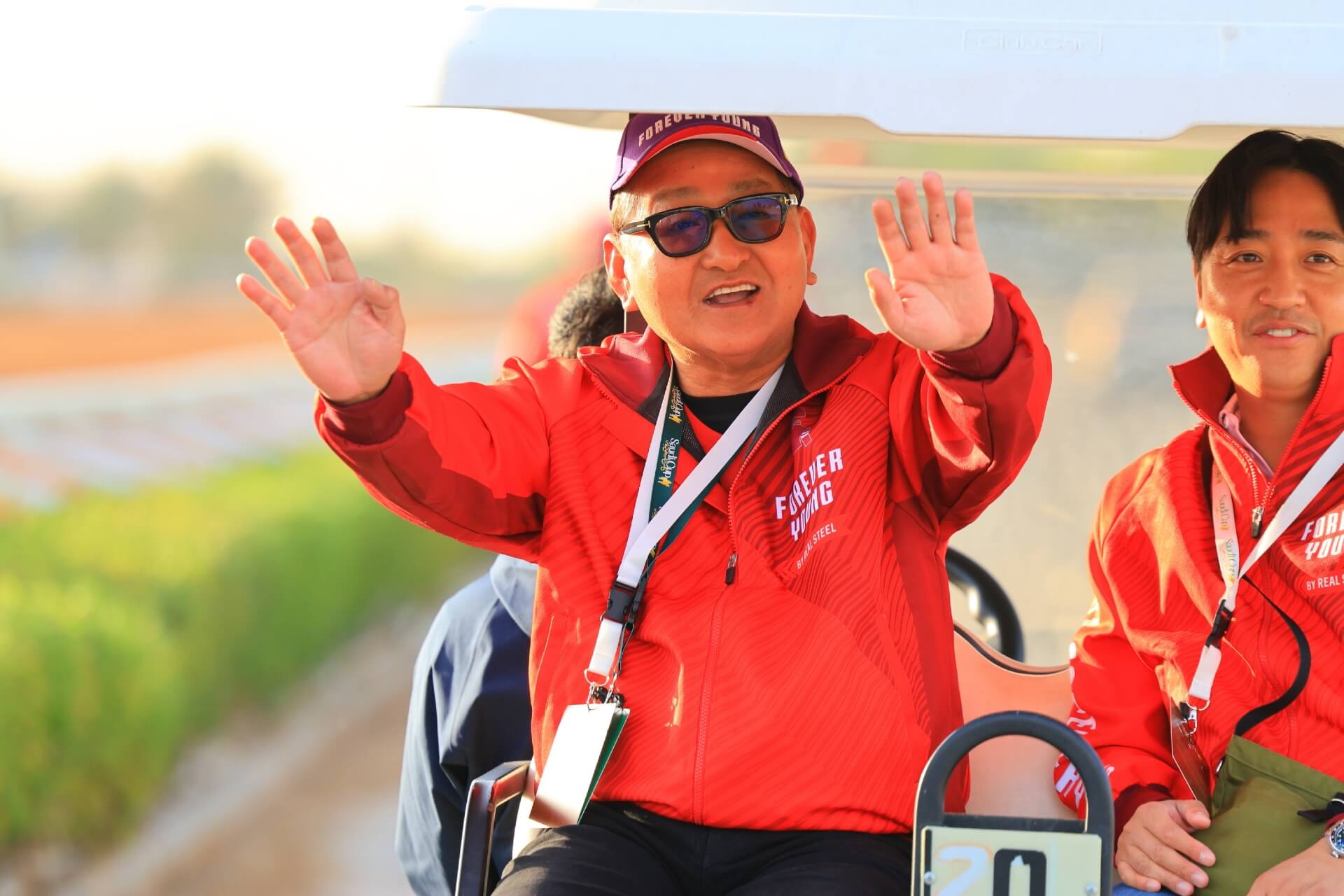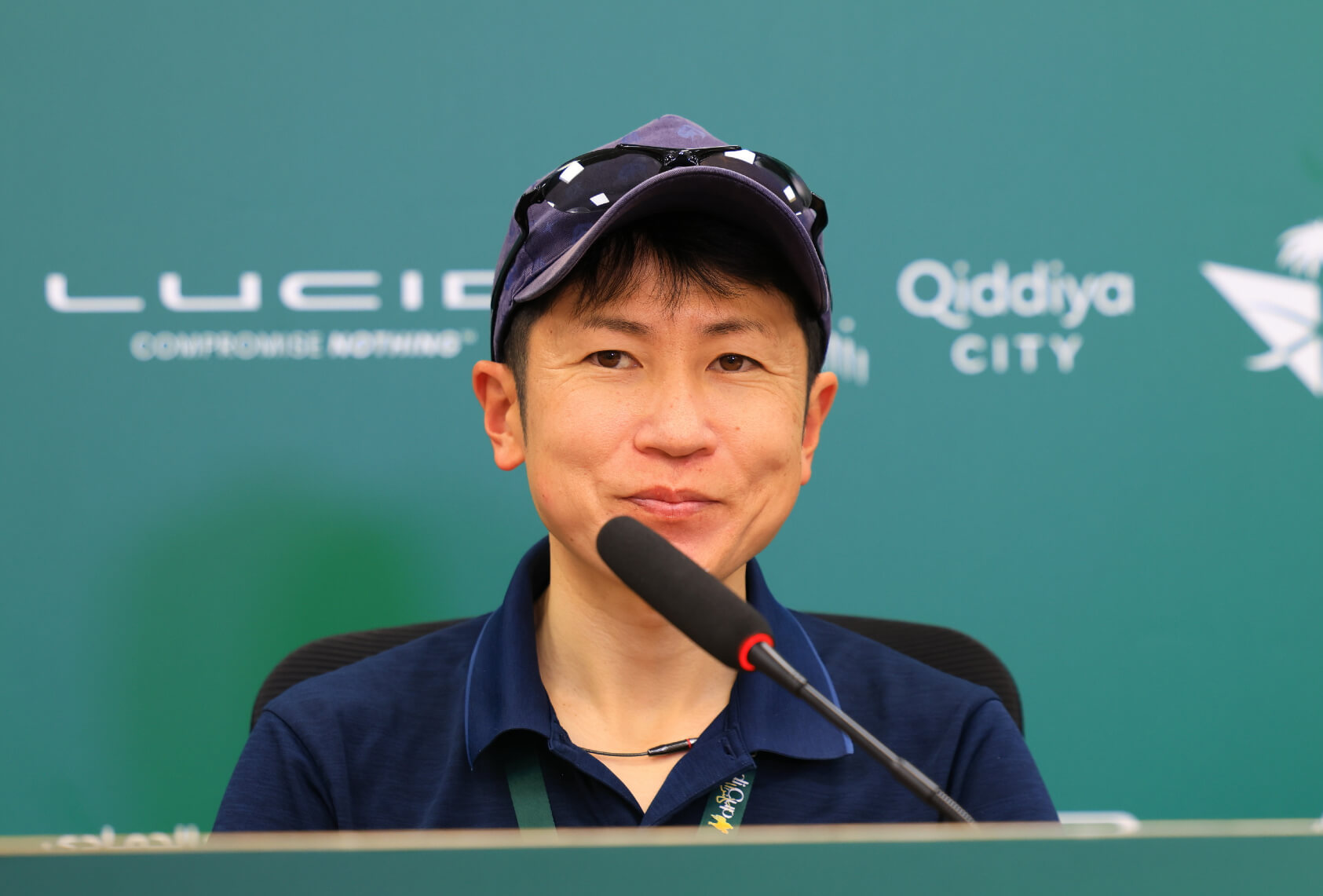Prix de l’Arc de Triomphe Misery For Japan, But The Fans Keep It Real
Japan’s racing fans displayed a thriving connection to their heroes on a day when their horses failed again to end the long wait for Arc victory.
“MAKE SOME NOISE!” the almost incessant voice emanating from the Longchamp racecourse loudspeaker urged loudly before the start of the G1 Prix de l’Arc de Triomphe. The crowd responded with a half-cocked cheer.
There was no need: sports fans know the drill. When the gates crashed open to unleash the 17 runners on Europe’s richest race, an unprompted full-throated roar carried across the Bois de Boulogne.
The crowd erupted again when the field turned into the home straight and lifted to a cacophony, urging and cheering from the packed grandstand and lawns as Coolmore’s star filly Minnie Hauk kicked for home. The fans of all hues kept ramping it up as the Aga Khan Studs’ Daryz came at her, and the noise reached an ear-ringing climax when the colt took the prize in the final stride, scoring by a head to give jockey Mickael Barzalona and trainer Francis-Henri Graffard their first victories in the great race.
“This race is very, very special in terms of emotions,” Graffard said afterwards. “As a young boy racing fan, I was dreaming of a race like this, (winning) with these colours.”
The victory took the tally to five wins for the green with red epaulets and this one was poignant given the Aga Khan’s passing in February of this year.
“This is kind of why we do this job,” said Barzalona, sitting alongside the late Aga Khan’s daughter, Princess Zahra Aga Khan. “I knew that, with these silks, it was certainly more than possible. I’m lucky to be able to wear them and follow in the footsteps of the great jockeys who rode in them.
“It’s done,” he added.
It’s not done for Japan, though. What Japan’s horsemen and committed fans – those at Longchamp, those who went to Tokyo racecourse for a late-night viewing, and those who watched at home – would give for just one Prix de l’Arc de Triomphe, twenty-six years and counting since El Condor Pasa was reeled in and placed second behind Montjeu.
The disappointment post-race was palpable this time as Japanese trainers and their jockeys conducted sombre, self-reflecting interviews.
“To everyone who supported us, I’m truly sorry we couldn’t get the result,” said Croix Du Nord’s jockey Yuichi Kitamura whose stoic visage could not mask the emotion in his eyes.
Croix Du Nord, along with Byzantine Dream and Alohi Alii, joined the 35 previous attempts by Japanese horses that failed to win the race: also included among those losses are the big heartbreakers and near-misses Deep Impact, Orfevre and Nakayama Festa.
The spectre of El Condor Pasa’s promising second-place in 1999 – a performance that suggested Japan had arrived and the Arc was soon to be theirs – is proving difficult to move beyond.
“I was 13 then, I was just a boy,” Kitamura had told Idol Horse in the expectant, hope-filled few hours before the race. “At the time, I simply thought that (El Condor Pasa) even finishing second was amazing.”
And then he added, “I will win today … It’s tough from the outside draw… but I will give it my all.”
That sense of confidence in the ability of the Japanese horses was evident all-around Longchamp, albeit tempered by the reality of history.
“We are never confident with this race,” said one participant with close connections to one of Japan’s runners.
But out on the steps and lawns, the many flag-waving Japanese fans of all ages, with their banners and scarves in the colours of their heroes, were positive pre-race, buoyed no doubt by the morning sunshine that warmed Longchamp before giving way to moody clouds, intermittent hazy sun-breaks and finally the rain that sent a rainbow arcing across the track as the race was being run.
“We always have confidence,” said Akio Takeuchi from Kyoto who was “about 20” when El Condor Pasa ran second in Paris.
“He ran really well in Saint-Cloud and we expected to have a win, so I was a bit disappointed at that time,” he recalled.
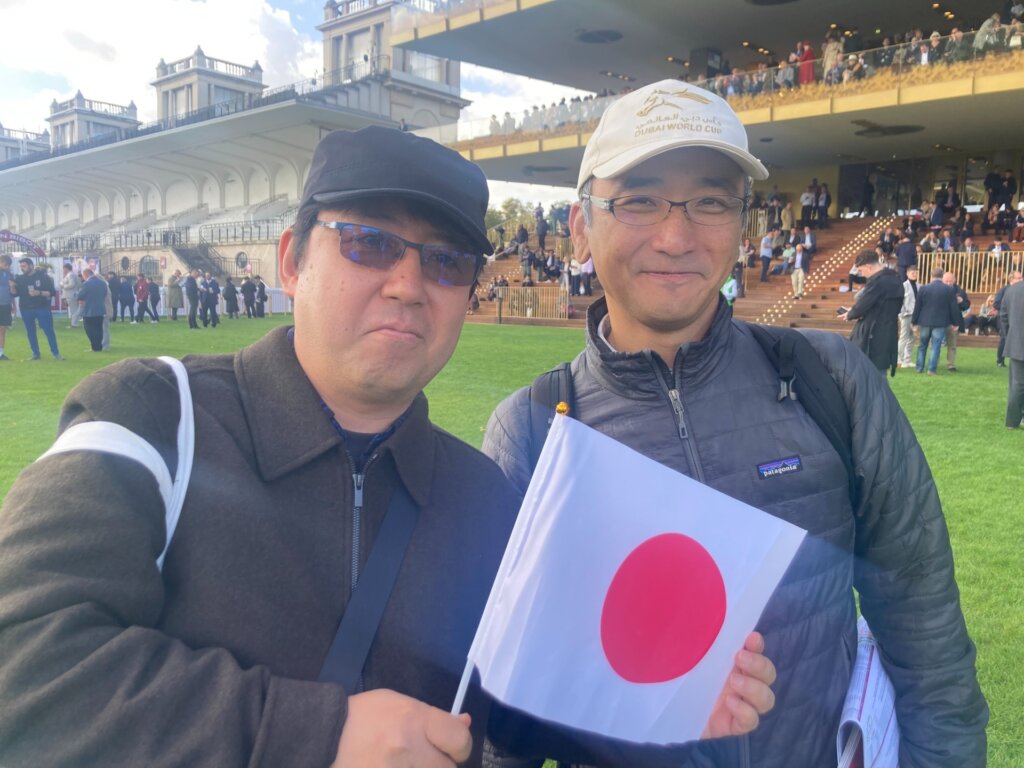
Takeuchi was so taken that he made his way to Longchamp four years later to watch the Aga Khan’s Dalakhani defeat a field that did not even feature a Japanese runner. He returned in 2024 and again this year for an extended trip.
“I came here three weeks ago to see the Prix du Prince d’Orange,” he said. “Croix du Nord did well even though he was a little below his best, so this time he will be much better.”
Takeuchi was on course with Koichi Hayashi, originally from Tokyo but living in Munich.
“We have divided opinions,” Takeuchi smiled and his friend explained where his own loyalty lay: “I was at Munich racecourse,” Hayashi said. “I took a photo with Oisin Murphy. He was very kind so I am supporting him.”
Behind them, the spectacle of solo dancers in the Arc’s maroon, liveried polo shirts busting out moves on platforms above the PMU terminals in front of the grandstand, felt incongruous. Perhaps that’s what the kids want in France, but the young fans among the Japanese contingent were there for the horses and the sport.
A trio of relatively new fans held a Japanese flag. One of them, Hiroaki Ando, wore traditional Japanese dress; his friend, Hikaru Ouchi had a plushy of the character Gold Ship from Umamusume, the game and anime franchise that takes hero horses and puts them in an alternative universe as late-teen ‘horse girl’ athletes.
“I was first interested in Umamusume and then I started following horse racing,” Ouchi said.
Ouchi and Ando were well-acquainted with Japan’s Arc backstory. They had filled in the gaps watching Youtube videos of the sport’s past stars. Games, storylines, heroes and the raw excitement of sport are the elements that brought connection.
“The (Umamusume) anime was so impressive that I wanted to feel that atmosphere at the race track for real,” Ando said. “I went and it was awesome. I saw Romantic Warrior from Hong Kong win the Yasuda Kinen at Tokyo. There were lots of Hong Kong people there and they cheered so loudly for him, it was surprising to me.”
Shu Inada, another twenty-something from Tokyo was close to the rail just beyond the Longchamp winning post as Australia’s Asfoora won the G1 Prix de l’Abbaye. He was wearing a Do Deuce cap and a Byzantine Dream scarf and said he knew all about Japan’s Arc history despite only really getting into the sport through a work colleague two years ago.
“He took me to the Grade 2 Flora Stakes at Tokyo,” he said. “I thought it was very fun; not to bet, it was the race that was very exciting for me. I very much like sports and horseracing is one of the sports I find exciting.
“When I was young, I really liked Orfevre so I watched the Prix de l’Arc de Triomphe as a young boy. If a Japanese horse wins it will be exciting,” he added, “and I will probably cry.”
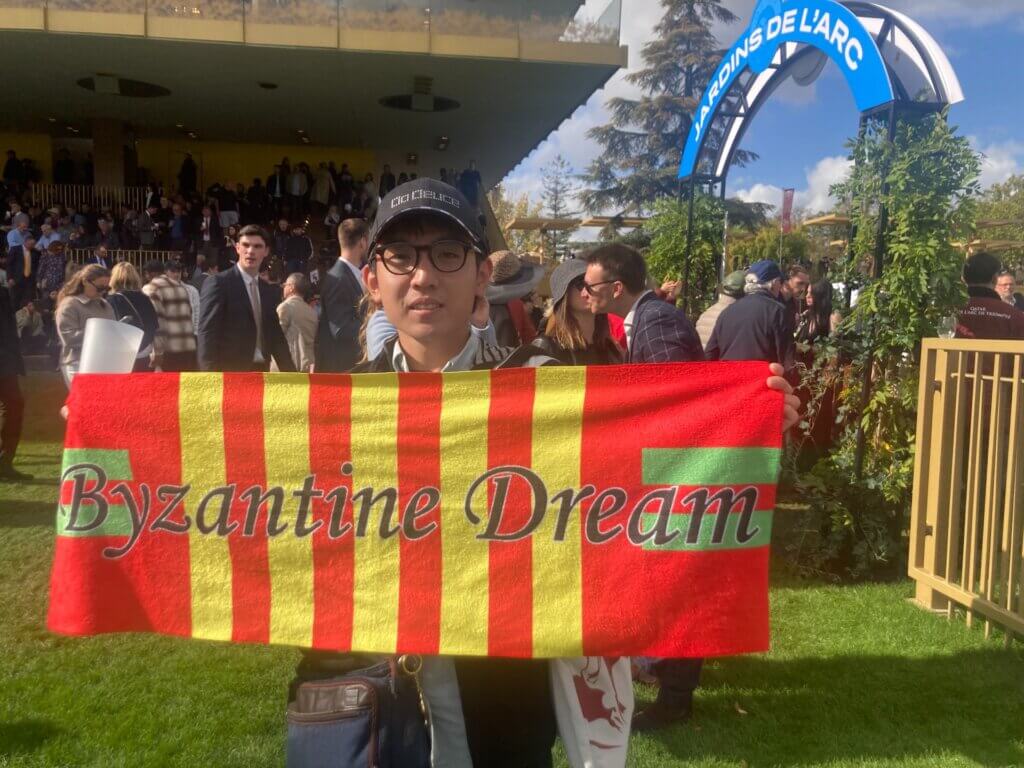
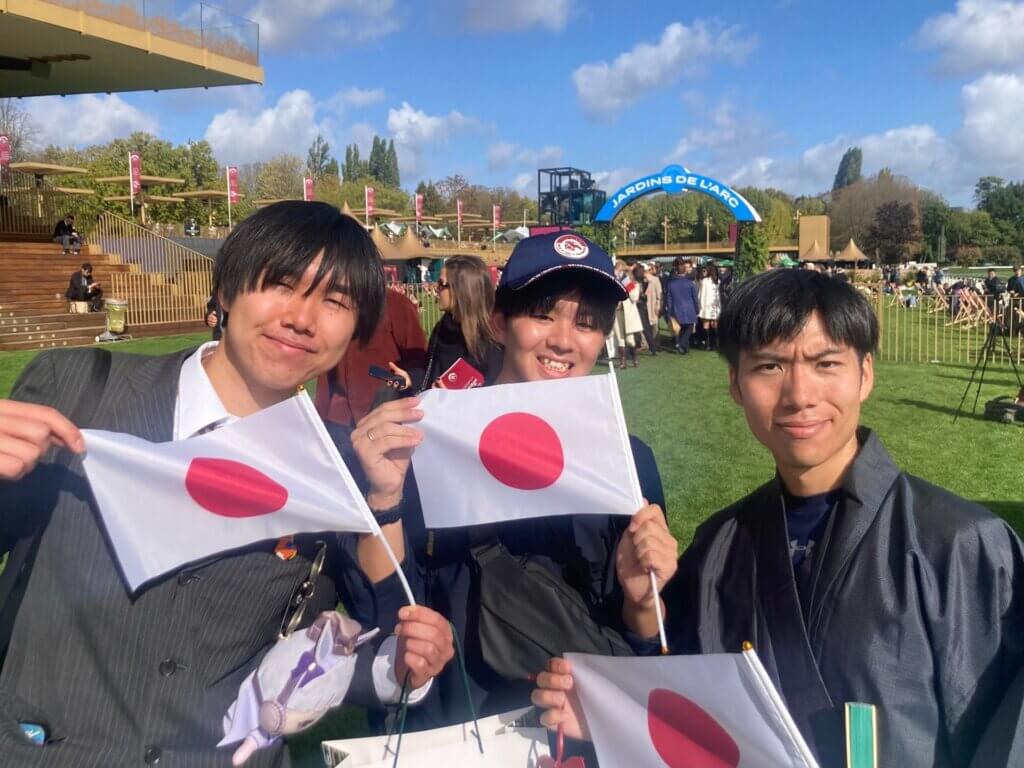
Any tears shed at Longchamp this afternoon, though, were not for a long-awaited Japanese triumph but for the heartbreak of another loss, another year when their heroes were unable to show their true talent.
There was a sense of deep disappointment among the Japanese contingent of jockeys, trainers and press after Byzantine Dream, Croix Du Nord and Alohi Alii had passed the famous winning post fifth, 14th and 16th despite each winning hope-elevating lead-up races in France.
Byzantine Dream’s trainer Tomoyasu Sakaguchi at least said that he was pleased that his horse had proven his ability in the class and at the distance.
But Alohi Alii’s trainer Hiroyasu Tanaka initially gave “no comment” as he exited the weighing room stern-faced. Not long after, he faced the cameras and the questions and thanked the fans.
“The honest truth is that this race is just not easy,” he said. “We didn’t take it lightly, but I realise that adapting to this environment – which I believe goes beyond just the track condition – is something we need to seriously consider.”
Kitamura and Croix Du Nord’s trainer Takashi Saito were not blaming the very soft ground either – “I don’t think it had any effect whatsoever,” was Kitamura’s opinion – rather the wide draw and the colt’s prominent position without cover were put forward as factors for why the horse could not relax.
Croix Du Nord suffered for being prominent through a first 1400m that was run in a swift 1m 27.93s, the second fastest in the last six years and slower only than the 2023 race, which took place on quicker going.
“There was no plan to go forward, but I think things unfolded in a worse way than we had anticipated,” Saito said.
“This was a disappointing result, but I don’t believe this is everything. If there is another chance, I would like to bring him back to France next year, but that depends on the horse’s future and the owner’s decision. First, we will take him back to Japan, rebuild him, and start racing him again from there.”
But Alohi Alii’s pilot, Japan’s champion jockey, Christophe Lemaire believed the going was a factor.
“He felt the ground: on such heavy ground he could not shift gears and was unable to accelerate,” Lemaire said.
“Japanese horses are not accustomed to this kind of going, and it makes things very tough. It was a disappointing result today, but I believe he can perform at the top level back in Japan.”
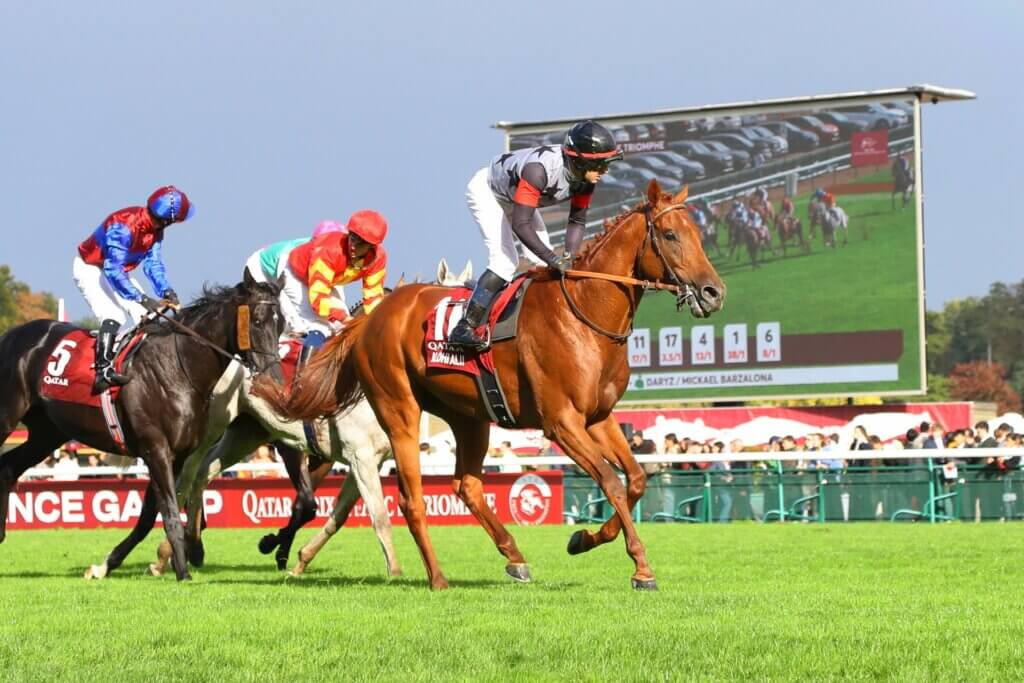
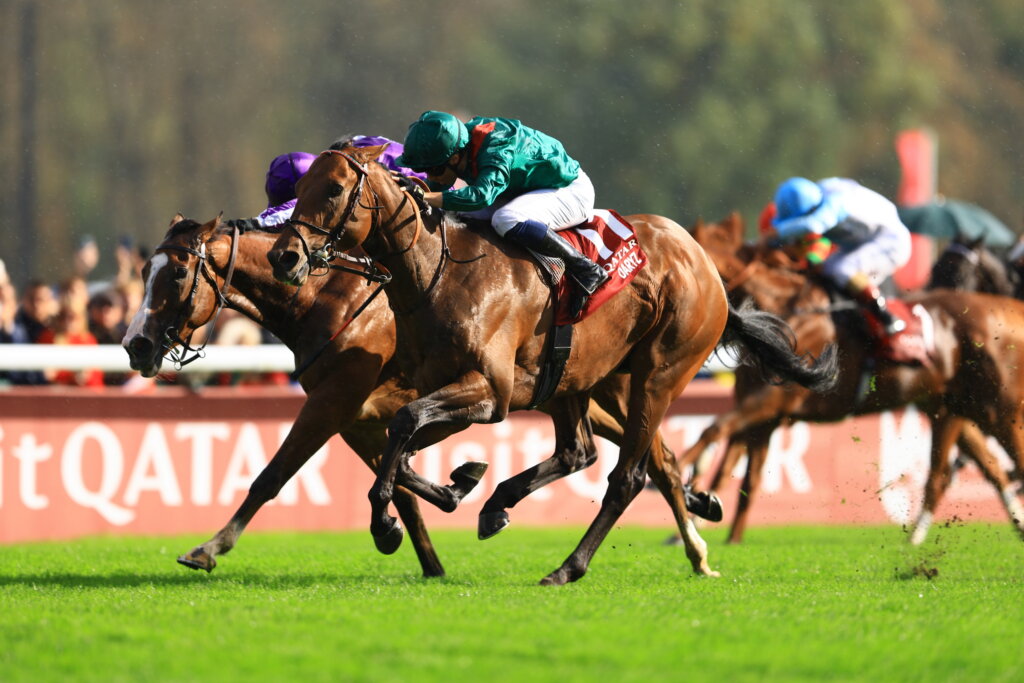
Lemaire, like everyone else connected with Japan’s horses, was left waiting for his first Arc win and that disappointment must bite harder for a man who at age 46 knows the years will soon start running out for him to achieve that ambition.
But as he stood with friends ready to leave, obliging fans for selfies, journalists and cameras all around him, his eye was taken to a young Japanese boy and his family, standing above the scene on a walkway; the boy was holding a cut-out of Lemaire’s face, waving at his hero.
Lemaire smiled, brightened by the sight, and waved back at what could be horse racing’s future, an excited young fan with dreams – like Graffard once was – drawn in by heroes and snared by the drama of the sport, both the heartbreak and the joy. ∎
